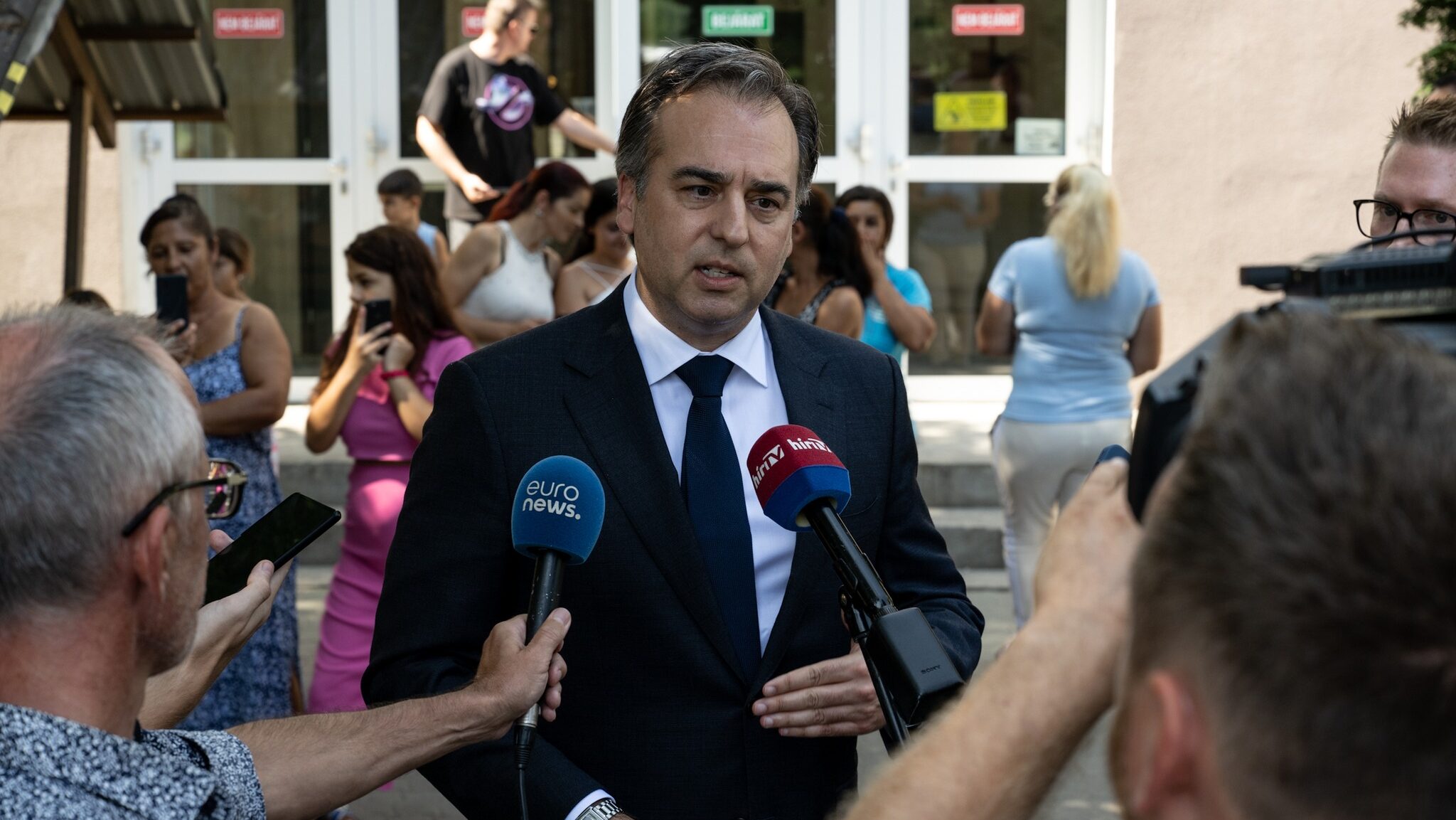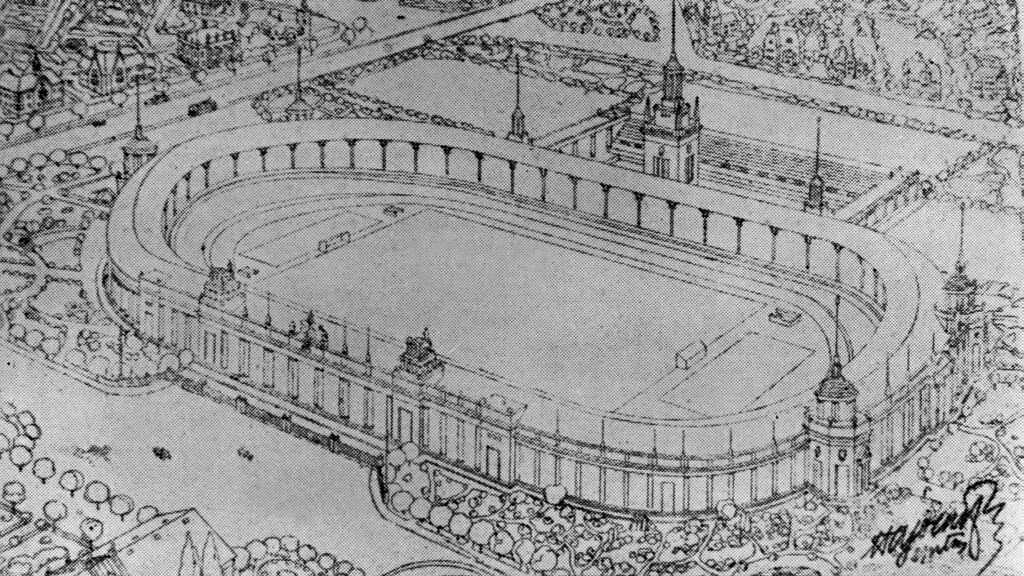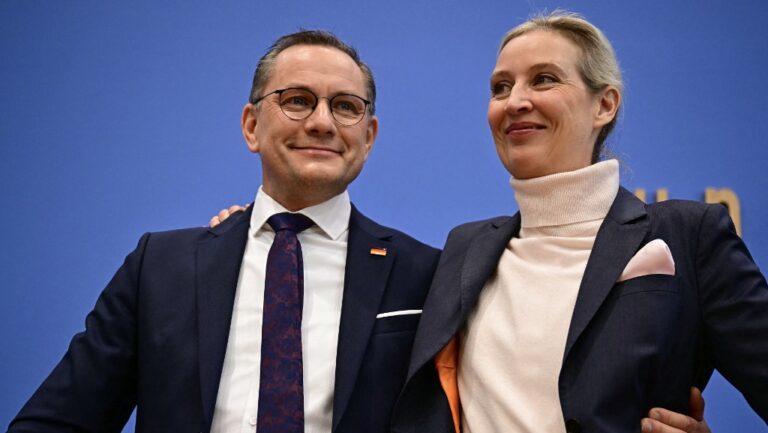US Ambassador to Hungary David Pressman visited Esztergom on Wednesday, where he met with refugees from Transcarpathia and held a brief press conference. During the event, he once again criticized the Hungarian government and Prime Minister Viktor Orbán, as has become his habit.
In response to a question from the left-wing outlet 444, Pressman referred to Orbán’s peace mission in early July as ‘just a performance’. The ambassador added that he is not convinced anyone is genuinely following Orbán’s peace efforts.
As reported by Hungarian Conservative, Prime Minister Viktor Orbán visited Kyiv, Moscow, Beijing, Washington, and the Mar-a-Lago residence of former US President and current Republican presidential candidate Donald Trump in early July. During these visits, Orbán sought to explore possibilities for a peaceful settlement in Ukraine and later shared his experiences and suggestions with outgoing European Council President Charles Michel. The peace mission sparked outrage in Brussels, with EU leaders alleging that Orbán acted in his capacity as the acting presidency of the EU. However, Hungarian government officials have repeatedly clarified that he attended the meetings solely as the prime minister of Hungary.
Pressman stated that as long as it is clear to Orbán or any other politician who is responsible for the war in Ukraine, and that it could end tomorrow if Putin decides, Orbán is not a harbinger of peace but of appeasement. Pressman deliberately used the term ‘appeasement’, a term historically associated with conflict-avoiding diplomacy towards aggressive powers. It is most commonly used to describe the actions of
the British government that negotiated with the Nazis before the Second World War.
A frequent accusation levelled against Viktor Orbán and the Hungarian government’s pro-peace stance is that they allegedly support Russia’s ‘version’ of ‘peace’, which would effectively amount to a quasi-surrender of Ukraine—a point Pressman implicitly suggested with his use of the term ‘appeasement’. However, this narrative is contradicted by the fact that Orbán did not begin his peace mission in Moscow, but rather in Kyiv, where he held talks with President Volodymyr Zelenskyy. This point was also emphasized by former editor-in-chief of Bild Kai Diekmann in a recent interview with Hungarian Conservative. ‘Viktor Orbán not only went to Moscow, to China, and to the US, but he went to Volodymyr Zelenskyy first. And this, in my regard, is the most important thing,’ Diekmann underlined.
Pressman’s also shared a post on social media about his visit to Esztergom where he met with Transcarpathian Hungarian Roma refugees who had been ‘evicted’ from their state-subsidized housing after a recent government decree has limited state support for Ukrainian refugees coming Hungary to Hungary from areas of Ukraine not directly affected by the war. (Since Pressman’s post their situation has been resolved, thanks to an agreement between the Hungarian Charity Service of the Order of Malta and government). The same post was also shared on the US Embassy’s Facebook page, acknowledging Hungary’s significant efforts in helping Ukrainian refugees—not excluding praise for the United States, of course. The post reads: ‘The Hungarian people have shown enormous generosity to Ukrainian refugees, and the United States is the largest contributor to humanitarian assistance for those fleeing war, including having invested millions in Hungary’s response to the Ukraine refugee crisis.’
Pressman has been a frequent critic of the Hungarian government since his appointment, most recently expressing concerns over Viktor Orbán’s support for Donald Trump’s re-election bid in the upcoming US presidential election in November. During a speech marking the 248th anniversary of US independence, Pressman warned that politicizing bilateral relations along party lines between allies is dangerous, particularly in times of heightened tension. ‘It does not serve the Hungarian people and, along with a number of other strategic decisions made in Budapest, risks changing the relationship between Hungary and America,’ Pressman stated. He further emphasized that while the Hungarian government may view its relationship with the US as a political issue, the United States does not share this perspective.
This is rather ironic as not so long ago, in March, US President Joe Biden spoke at a campaign event,
claiming that Viktor Orbán is building a dictatorship in Hungary.
Biden used this statement in an attempt to discredit Donald Trump; so in fact, it was the US President who introduced partisan politics into the relationship between the United States and Hungary. After this statement the Hungarian Foreign Ministry summoned David Pressman.
Prior to this, following the European Parliament elections in June, the US Ambassador accused the Hungarian government of spreading falsehoods during the campaign about NATO’s involvement in Ukraine.
Read more about David Pressman:







